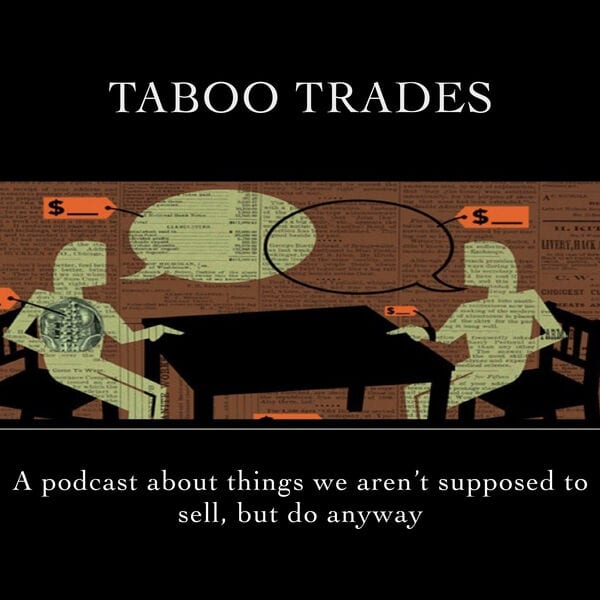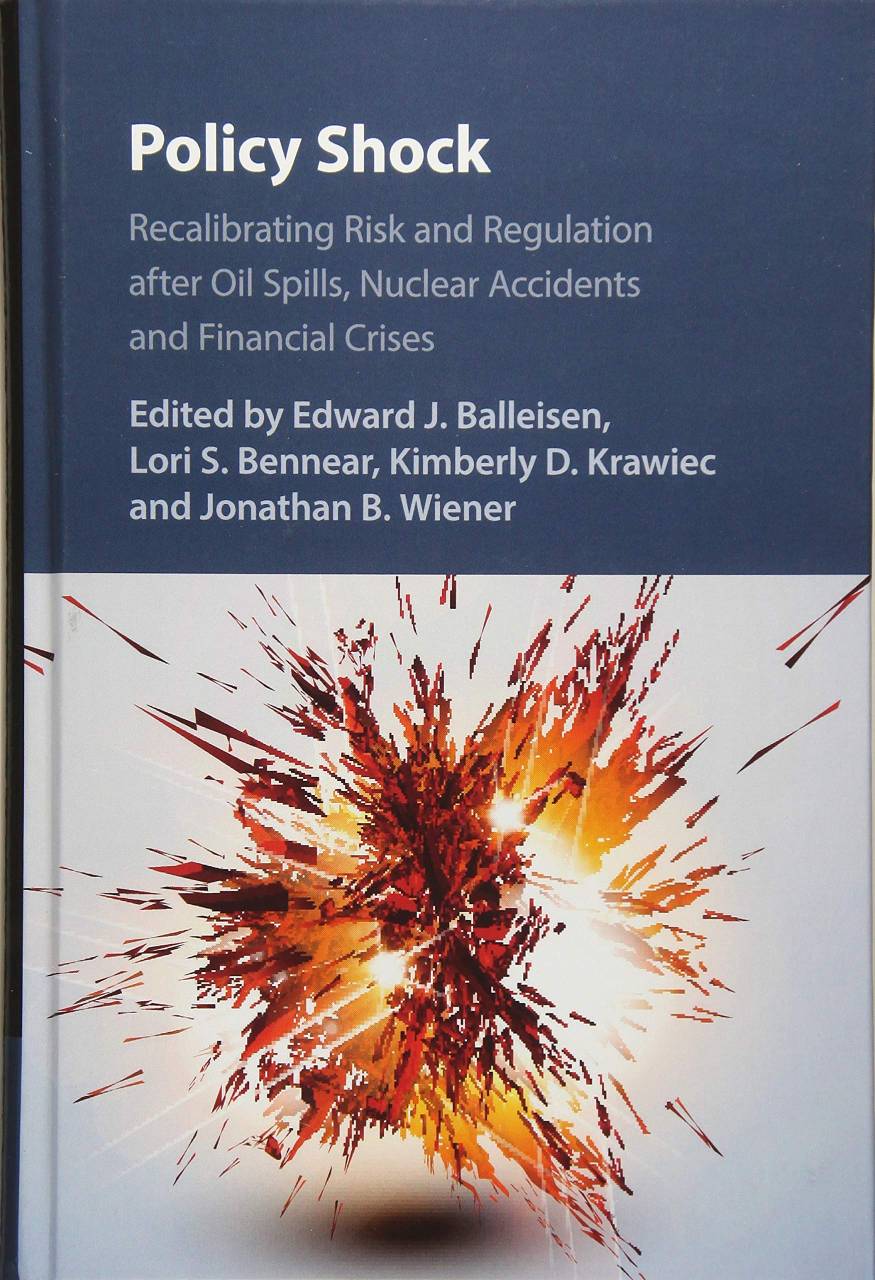Kimberly D. Krawiec
I am the Charles O. Gregory Professor of Law at the University of Virginia.

About Me
My Research
Much of my current research analyzes “taboo trades” — exchanges that are contested by society and, in some cases, forbidden altogether. I have written on commercial surrogacy, egg and sperm markets, and sex work. At the moment, much of my work is on incentives for organ donation. Although financial incentives are part of the menu, I am most interested in non-financial incentives, such as kidney swaps, NEAD chains, and priority systems that provide an incentive to donate. You can view my work on Taboo Trades.
Organ Entrepreneurs, in The Handbook on Law and Entrepreneurship (forthcoming) (with Kieran Healy)
If We Allow Football Players and Boxers to Be Paid for Entertaining the Public, Why Don’t We Allow Kidney Donors to Be Paid for Saving Lives?, 81 Law and Contemporary Problems 9-35 (2018) (with Philip J. Cook)
If We Pay Football Players, Why Not Kidney Donors?, 41 Regulation 12-17 (2018) (with Philip J. Cook)
Contract Development in a Matching Market: The Case of Kidney Exchange, 80 Law & Contemporary Problems 11-35 (No. 1 2017) (with Wenhao Liu & Marc Melcher)
Kidney Exchange to Overcome Financial Barriers to Kidney Transplantation, American Journal of Transplantation 782-790 (2017) (with Rees, et al.)
Repugnance Management and Transactions in the Body, 107 American Economic Review: Papers & Proceedings 1-5 (2017) (with Kieran Healy)
Lessons from Law About Incomplete Commodification in the Egg Market, 33 Journal of Applied Philosophy160-177 (2016)
How Can the Shortage of Kidneys for Transplantation be Rectified? Medical Law Perspectives (July 2015) (with Philip J. Cook)
Markets, Morals, and Limits in the Exchange of Human Eggs, 13 Georgetown Journal of Law & Public Policy 349-365 (2015)
A Primer on Kidney Transplantation: Anatomy of the Shortage, 77 Law and Contemporary Problems 1-23 (2014) (with Philip J. Cook)
Reverse Transplant Tourism, 77 Law and Contemporary Problems 145-173 (2014) (with Michael A. Rees)
Egg-Donor Price Fixing and Kamakahi v. American Society for Reproductive Medicine. Virtual Mentor. 2014; 16:57-62.
Custom, Contract, and Kidney Exchange, 62 Duke Law Journal 645-670 (2012) (with Kieran Healy)
Introduction: For Love or Money? Defining Relationships in Law and Life, 35 Washington University Journal of Law & Policy 1-9 (2011) (with Marion Crain)
The Dark Side of Commodification Critiques: Politics and Elitism in Standardized Testing, 35 Washington University Journal of Law & Policy 349-362 (2011)
A Woman’s Worth, 88 North Carolina Law Review 1739-1769 (2010)
Price and Pretense in the Baby Market, in Baby Markets: Money and the New Politics of Creating Families41-55 (Michelle Bratcher Goodwin ed., 2010)
Altruism and Intermediation in the Market for Babies, 66 Washington & Lee Law Review 203-257 (2009)
Show Me The Money: Making Markets in Forbidden Exchange, 72 Law & Contemporary Problems i-xiv (Summer 2009)
Sunny Samaritans and Egomaniacs: Price-Fixing in the Gamete Market, 72 Law & Contemporary Problems 59-90 (Summer 2009)
Why We Should Ignore the “Octomom”, 104 Northwestern University Law Review Colloquy 120-131 (2009)
Another area of my research centers on the regulation of financial markets and business organizations. At present, I am examining the administrative process surrounding the Volcker Rule, a complex and highly-contested provision of Dodd-Frank. You can view my work on the regulation of financial markets and business organizations here.
Policy Shock: Regulatory Responses to Oil Spills, Nuclear Accidents, and Financial Meltdowns (Cambridge University Press, 2017) (editor with Edward J Balleisen, Lori S Bennear, & Jonathan Wiener)
The Volcker Rule: A Brief Political History, 10 Capital Markets Law Journal 507-522 (2015) (with Guangya Liu)
Agency Lobbying and Financial Reform: A Volcker Rule Case Study, 32 Banking & Financial Services Policy Report 15-22 (August 2013)
Don’t ‘Screw Joe the Plummer’: The Sausage-Making of Financial Reform, 55 Arizona Law Review 53-103 (2013)
Operational Risk Management: An Emergent Industry, in Operational Risk Towards Basel III: Best Practices and Issues in Modeling, Management and Regulation 271 (G.N. Gregoriou ed., John Wiley & Sons 2009)
The Return of the Rogue, 51 Arizona Law Review 127-174 (2009)
Cosmetic Compliance and the Failure of Negotiated Governance, 81 Washington University Law Quarterly487-544 (2003)
Derivatives on TV: A Tale of Two Derivatives Debacles in Prime Time, 4 Green Bag 2d 257-267 (2001) (with Peter H. Huang & Frank Partnoy)
Fairness, Efficiency and Insider Trading: Deconstructing the Coin of the Realm in the Information Age, 95Northwestern University Law Review 443-503 (2001)
Foreword: The Regulation of Derivatives and Other Complex Financial Products, 21 Northwestern Journal of International Law & Business 565-571 (2001)
Privatizing “Outsider Trading, 41 Virginia Journal of International Law 693-715 (2001)
Accounting for Greed: Unraveling the “Rogue Trader” Mystery, 79 Oregon Law Review 301-338 (2000)
Derivatives, Corporate Hedging and Shareholder Wealth: Modigliani-Miller Forty Years Later, 1998 University of Illinois Law Review 1039-1104
Don’t Ask, Just Tell: Insider Trading After United States v. O’Hagan, 84 Virginia Law Review 153-228 (1998) (with Richard Painter & Cindy Williams)
Corporate Debt Restructurings in Mexico: For Foreign Creditors, Insolvency Law Is Only Half the Story, 17New York Law School Journal of International & Comparative Law 481-486 (1997)
Fiduciaries, Misappropriators and the Murky Outlines of the Den of Thieves: A Conceptual Continuum for Analyzing United States v. O’Hagan, 33 Tulsa Law Journal 163-175 (1997)
More Than Just New Financial Bingo: A Risk-based Approach to Understanding Derivatives, 23 Journal of Corporation Law 1-63 (1997)
Gustafson v. Alloyd Co.: The Wrong Decision, But it is Still Business As Usual in the Securities Markets, 31 Tulsa Law Journal 509-520 (1996)
Finally, I have spent several years researching corporate boards of directors. Through an ethnographic method, this work analyzes directors’ views on the workings of the corporate boardroom and board relations with management, with a special emphasis on directors’ views on race and gender diversity in the boardroom. You can view my research on board diversity here.
Diversity and Talent at the Top: Lessons From the Boardroom, in Diversity in Practice: Race, Gender, and Class in Legal and Professional Careers 37-80 (Spencer Headworth et al eds., 2016) (with John Conley & Lissa Broome)
A Difficult Conversation: Corporate Directors on Race and Gender, 26 Pace International Law Review 13-22 (2014) (with John Conley & Lissa Broome)
The Danger of Difference: Tensions in Directors’ Views of Corporate Board Diversity, 2013 University of Illinois Law Review 919-958 (2013) (with John M. Conley & Lissa L. Broome)
Dangerous Categories: Narratives of Corporate Board Diversity, 89 North Carolina Law Review 759-808 (2011) (with John M. Conley & Lissa L. Broome)
Does Critical Mass Matter? Views from the Board Room, 34 Seattle University Law Review 1049-1080 (2011) (with Lissa L. Broome & John M. Conley)
Narratives of Diversity in the Corporate Boardroom: What Corporate Insiders Say about Why Diversity Matters, in Discourse Perspectives on Organizational Communication 201-660 (2011) (with John M. Conley & Lissa Lamkin Broome)
Signaling Through Board Diversity: Is Anyone Listening?, 77 University of Cincinnati Law Review 431-464 (2008) (with Lissa Broome)
Featured Book
Policy Shock
Recalibrating Risk and Regulation after Oil Spills, Nuclear Accidents and Financial Crises
Policy Shock examines how policy-makers in industrialized democracies respond to major crises. After the immediate challenges of disaster management, crises often reveal new evidence or frame new normative perspectives that drive reforms designed to prevent future events of a similar magnitude. Such responses vary widely – from cosmetically masking inaction, to creating stronger incentive systems, requiring greater transparency, reorganizing government institutions and tightening regulatory standards.
This book situates post-crisis regulatory policy-making through a set of conceptual essays written by leading scholars from economics, psychology and political science, which probe the latest thinking about risk analysis, risk perceptions, focusing events and narrative politics. It then presents ten historically-rich case studies that engage with crisis events in three policy domains: offshore oil, nuclear power and finance. It considers how governments can prepare to learn from crisis events – by creating standing expert investigative agencies to identify crisis causes and frame policy recommendations.
Podcast



